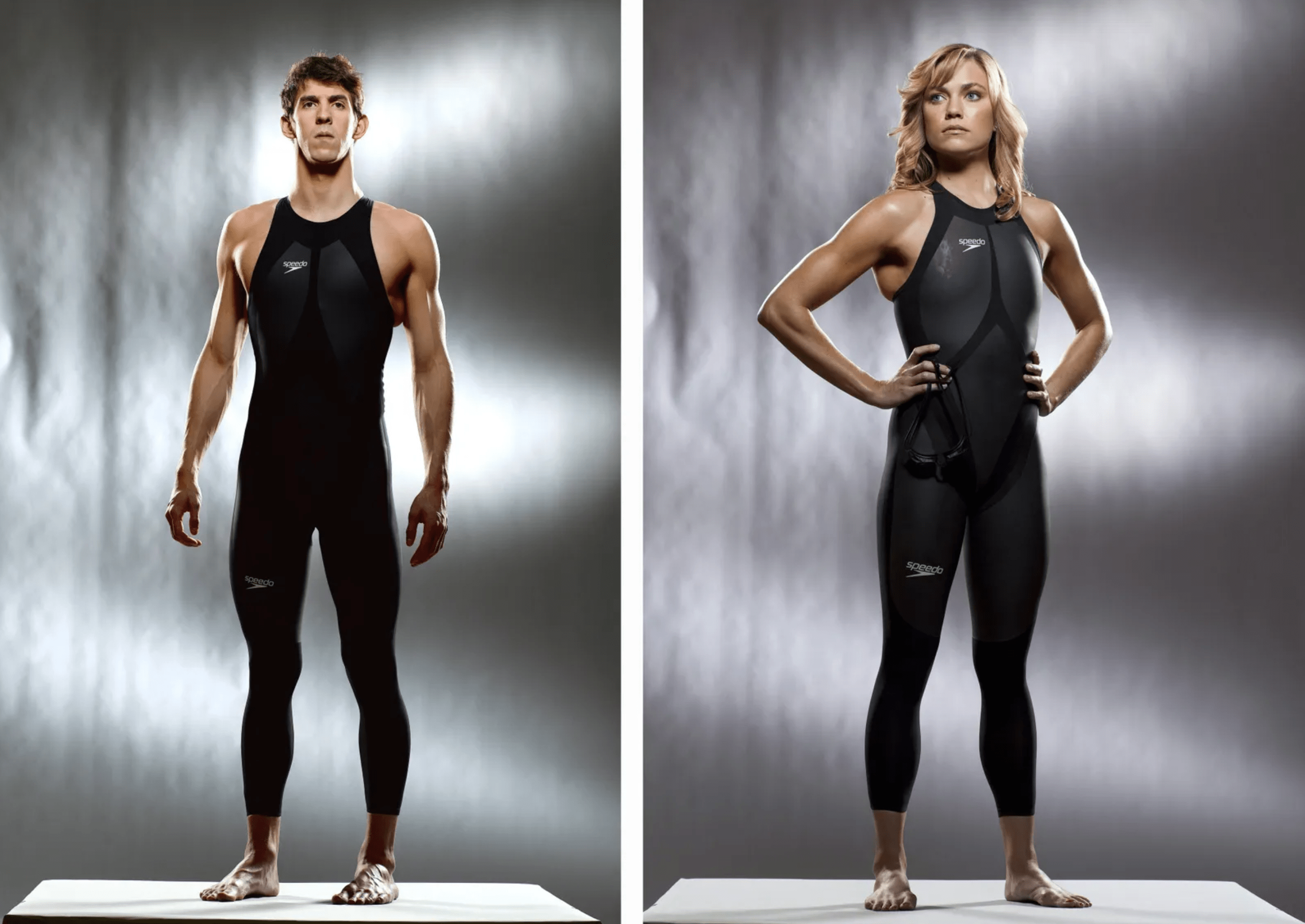The aughts were an exciting time to watch competitive swimming. Records were falling left and right, especially in 2008 and 2009. The first wave of improvements came around 2000, with the introduction of full-body swimwear. According to one analysis, men’s freestyle swimming performances improved by about 1% with that change. The next big leap came in 2008 when companies introduced polyurethane panels into the suits (most famously the LZR Razer suits pictured above) causing an additional 1.5-3.5% performance improvement. The panels were stiff, reducing the swimmer’s cross-sectional area and thereby reducing drag. Their effect was greatest in sprint events; long-distance swimmers saw fewer improvements, possibly because turning in the stiffer suits was tiring.
The biggest leap came in 2009 with all polyurethane full-body swimsuits, which streamlined swimmers and gave them skin friction improvements that let them slip through the water more easily. Freestyle swimmers with those suits were showing a full 5.5% performance improvement on top of the 2000-era full-body suits.
With so many records falling in 2008 and 2009 — largely to swimmers wearing the expensive new suits that some teams could not afford — swimming’s federation chose to ban the new technology, causing an immediate drop in performances to pre-polyurethane levels. Although sprint performances will likely improve little by little each year, no one is likely to break the sprint records of 2008-2009 in the next decade — not unless the federation establishes a “new rules” record the way officials did with the javelin after a major rule change. (Image credit: Getty Images; research credit: L. Foster et al.)
Today kicks off our fluids-themed Olympics coverage. Stay tuned for more sports this week and next week. If that’s not enough sports physics for you, check out what we wrote in previous years.

Leave a Reply